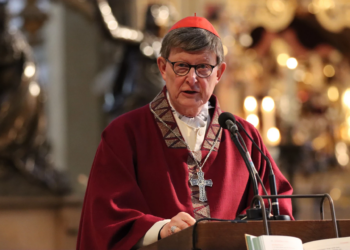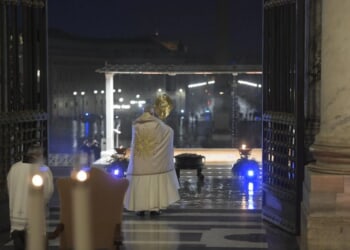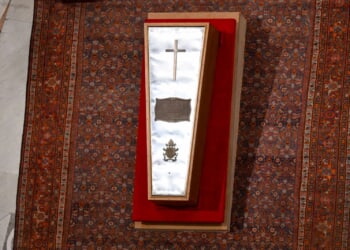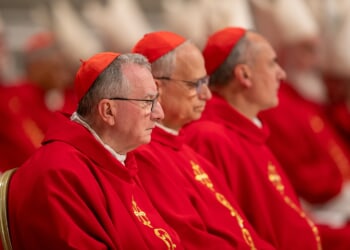CNA Staff, May 22, 2025 /
17:13 pm
The budget reconciliation bill that passed in the U.S. House of Representatives this week included groundbreaking school choice legislation that would provide $5 billion in K–12 scholarships each year through 2029.
If passed, the Educational Choice for Children Act (ECCA) establishes a dollar-for-dollar federal tax credit for individuals who donate to scholarship-granting organizations (SGOs). These organizations would in turn grant scholarships to students for educational expenses, including private school tuition.
While the ECCA could be game-changing for Catholic and other private schools across the country, the reconciliation bill must first pass in the U.S. Senate before the president can sign it into law. The bill passed narrowly in the House by only one vote.
Students, including home-schoolers, can use the educational scholarships established in the ECCA to cover a variety of expenses beyond tuition including books and tutoring as well as educational therapies for students with disabilities. If passed the act would go into effect after Dec. 31.
Many Catholic students already benefit from state school choice programs, with 31% of Catholic schools participating, according to the latest data from the National Catholic Educational Association.
The U.S. bishops, who endorsed the act earlier this year, praised the inclusion of the ECCA in the budget bill but also noted some “important changes that need to be made” in parts of the House bill.
In a statement, the bishops called for the “removal of poison pill language that would debilitate Catholic school participation.”
In school choice, “poison pill” language is wording designed to prevent religious schools from participating in school choice programs. But poison pills can also include a broad variety of restrictions that have the unintended effect of limiting the number of private and religious schools that can participate. These restrictions often include acceptance or hiring requirements that go beyond federal and state laws that private schools already follow.
For instance, this act requires that private schools provide accommodations to students with special education needs — a requirement that some say can be limiting for private schools that do not have the resources.
While the U.S. bishops have in the past highlighted the importance of “making Catholic education inclusive,” they noted in their statement that this requirement would “debilitate the ability for Catholic schools to participate.”
The bishops noted that private schools “generally do not receive IDEA [Individuals with Disabilities Education Act] funding, so they would have to pay these significant costs out of pocket.”
Calling it an “unfunded mandate,” the bishops urged the Senate to remove this language.
They also urged the Senate to “restore the $10 billion credit cap with both individual and corporate givers included,” both terms that had been included in the ECCA when it was originally proposed.
In spite of the bill’s shortcomings, advocates still see it as a big moment for school choice.
Norton Rainey, head of the SGO group ACE Scholarships, praised the bill as a “new milestone” after “decades of advocacy.”
“School choice has never seen such momentum at the federal level,” Rainey said in a statement shared with CNA in which he praised the ECCA for providing an alternative to the “one-size-fits-all education system.”
(Story continues below)
Subscribe to our daily newsletter
“ECCA has the power to lift children out of poverty, strengthen families, and rebuild communities,” Rainey said. “When you change education, you change everything.”

















